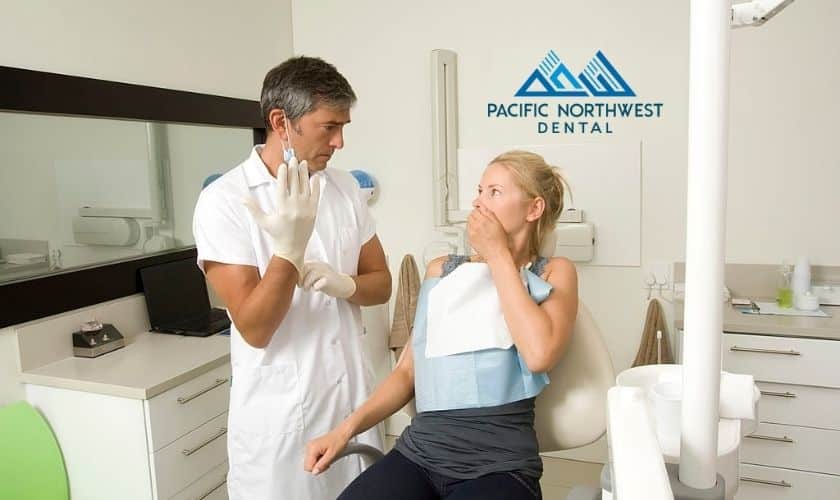
An abscessed tooth occurs when bacteria penetrate and infect your mouth via the gums, surrounding bone, or nerve inside the tooth. The results can vary from no pain at all to very severe. Pain associated symptoms include continuous extreme throbbing, shooting pain spreading outward from the infected area, sensitivity to hot and cold food and liquids, and difficulty swallowing or when opening and closing your mouth.
These symptoms may be accompanied by swollen glands, a migraine-like headache, and a fever. A small bump or sore filled with pus will likely be present on the gum, and there’s likely going to be some gum and jaw swelling as well.
The three main causes of abscessed teeth are:
- Cavities and tooth decay
- Gum disease (gingivitis or periodontitis)
Cracked or chipped tooth
If you think you have a tooth abscess, it is important that you see a dentist as soon as possible. Getting it treated by a professional is the most important step you can take. If left untreated, an abscess can spread to adjacent teeth and bone, creating more serious complications and problems near the source. In extreme cases, the infection/ abscess can spread to other areas of your body. These cases involve medical intervention, as well as care from a dentist.
Before going to your dental appointment, here are 6 simple steps you can take to relieve the pain:
- Apply an ice pack. This can help contain the swelling. The amount of pressure and swelling around the tooth can mimic migraine-like symptoms, so decreasing the swelling will decrease the intensity of the headache.
- Rinse the infected area with mouth rinse or saltwater at least three times a day—morning, noon, and night—and as often as you’d like. To make a saltwater rinse, mix ½ teaspoon of salt into a cup of lukewarm water. The best salt is natural sea salt. Stir until the salt is completely dissolved. Gently swish a small amount of the saltwater over the infected area before spitting it out. Repeat until the saltwater is gone.
- Take an over-the-counter pain relief medication. Ibuprofen/ Motrin is the most common over-the-counter anti-inflammatory prescribed and works by reducing the swelling around the infected area and the amount of pain you feel. If you have an NSAID allergy, please consult your physician first.
- Avoid extreme temperatures when eating food and drinking liquids.
- Brush and floss the infected area gently, but thoroughly. If the pain is too severe, avoid the area until treatment is rendered – and use a mouthwash.
- Elevate your head and upper body during sleep. This will decrease the blood pressure to your head, as well as the pain.
Regular check-ups and cleanings every 6 months will help prevent this event. However, if it does occur call your dentist immediately!
